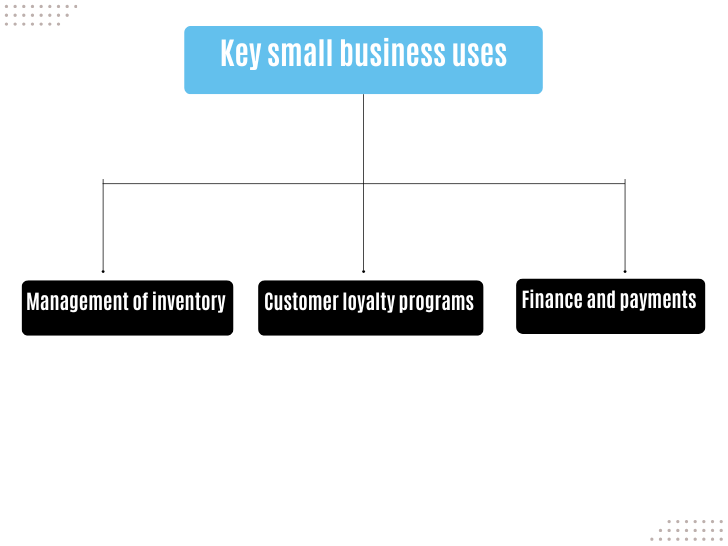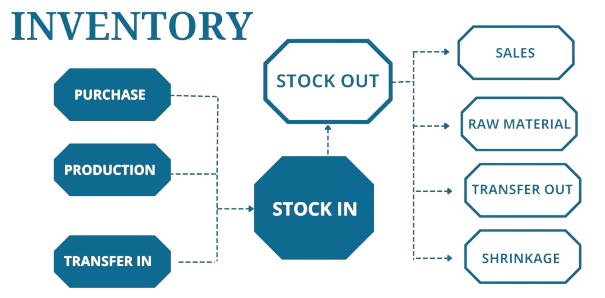Introduction
Over the past decade, Bitcoin and other cryptocurrencies have popularized blockchain. However, many feel blockchain is only for large corporations or finance-focused organizations. Blockchain technology may aid small businesses in areas like secure transactions, transparent supplier networks, and better recordkeeping. Blockchain can streamline operations, boost security, and save costs for small businesses, according to this essay.
Small Businesses’ Blockchain Use
Decentralized blockchain records transactions across numerous computers and requires consensus to edit data. Secure and transparent, it can optimize processes for various firm activities, even small companies.
Small businesses can adopt blockchain without overhauling processes. Efficiency in areas that benefit from decentralized verification and tracking is the major focus. Blockchain stores data securely, distributed, and without intermediaries, reducing costs and errors. Let’s examine how blockchain is already affecting key small business activities.
Key small business uses

Management of inventory
Small enterprises might struggle with inventory management, especially for perishable or high-volume goods. Businesses may track inventories in real time using blockchain’s immutable, time-stamped records. The blockchain records every shipment, sale, and return, making it instantly available to authorized parties.
Small retail businesses may check stock levels without discrepancies or human errors by integrating blockchain into their inventory systems. Blockchain technology helps small businesses reduce theft, stockouts, and inaccurate product counts by automatically updating and checking inventory data.

Customer loyalty programs
Small businesses encourage recurring purchases with loyalty programs. Traditional loyalty programs sometimes use expensive third-party technologies and need trust in other organizations. Blockchain can help small businesses create safe, transparent token-based loyalty programs.
Without a third-party platform, customers can rapidly transfer or redeem blockchain-based loyalty tokens. Blockchain also makes incentive transactions permanent and tamper-proof, preventing fraud. Point management in a single wallet simplifies and speeds up redemption for customers.

Finance and payments
Cross-border payments provide challenges for small firms mostly related to currency fluctuations, high transaction fees, and long processing delays. Blockchain can hasten processing of overseas payments and lower their cost. Small businesses can use blockchain technology to escape needless costs and delays from conventional banking.
Blockchain-based payment processing could be used by small e-commerce companies catering to overseas clients. Reduced prices, faster transactions, and better customer service would follow from this. Using blockchain technology, companies like Ripple give businesses quick, cheap cross-border payments.

Small Business Blockchain Adoption: A Step-by-Step Guide
Blockchain adoption can be intimidating but breaking it down into simpler steps may help. Here is a quick guide for small enterprises researching blockchain:
- Determine business needs.
Find out where blockchain can help most. Payment processing? And inventory management? Are clients loyal? Your goals will guide you in selecting a blockchain solution. - Select a platform.
Each blockchain system has its own characteristics and complexity. Smart contracts recognize Ethereum, while permissioned corporate applications recognize Hyperledger. Consider your company’s size, budget, and goals when choosing platforms. - Test with a pilot.
A tiny pilot project may help you understand how blockchain fits into your corporate strategy. You may test a blockchain-based loyalty program on a limited group of clients to verify its usability and user response. - Work with blockchain professionals.
Working with specialists or advisers might help blockchain beginners avoid costly mistakes. They can help with technical challenges and ensure your project meets goals and industry standards. - Scale and monitor
After a successful pilot, you can roll out your blockchain project across your company. Monitoring blockchain’s influence on your business lets you adjust and improve.
Top programming languages for blockchain application
https://www.simplilearn.com/blockchain-programming-languages-article
Conclusion
Blockchain has various applications for small enterprises, not simply for giant corporations or cryptocurrencies; it is not a futuristic tool. Blockchain can simplify consumer loyalty programs, inventory control, and payment cost lowering. Blockchain should be seen by small business owners as a rather effective instrument for efficiency and expansion rather than a technical challenge. Blockchain allows small businesses to increase competitiveness, customer confidence, and efficiency in the quickly changing market of today.






